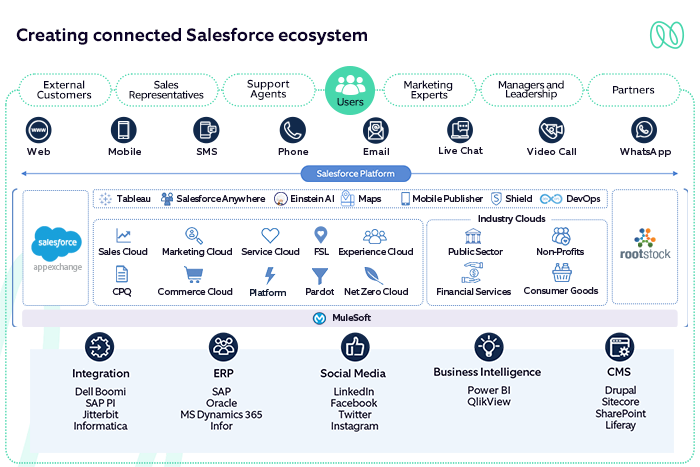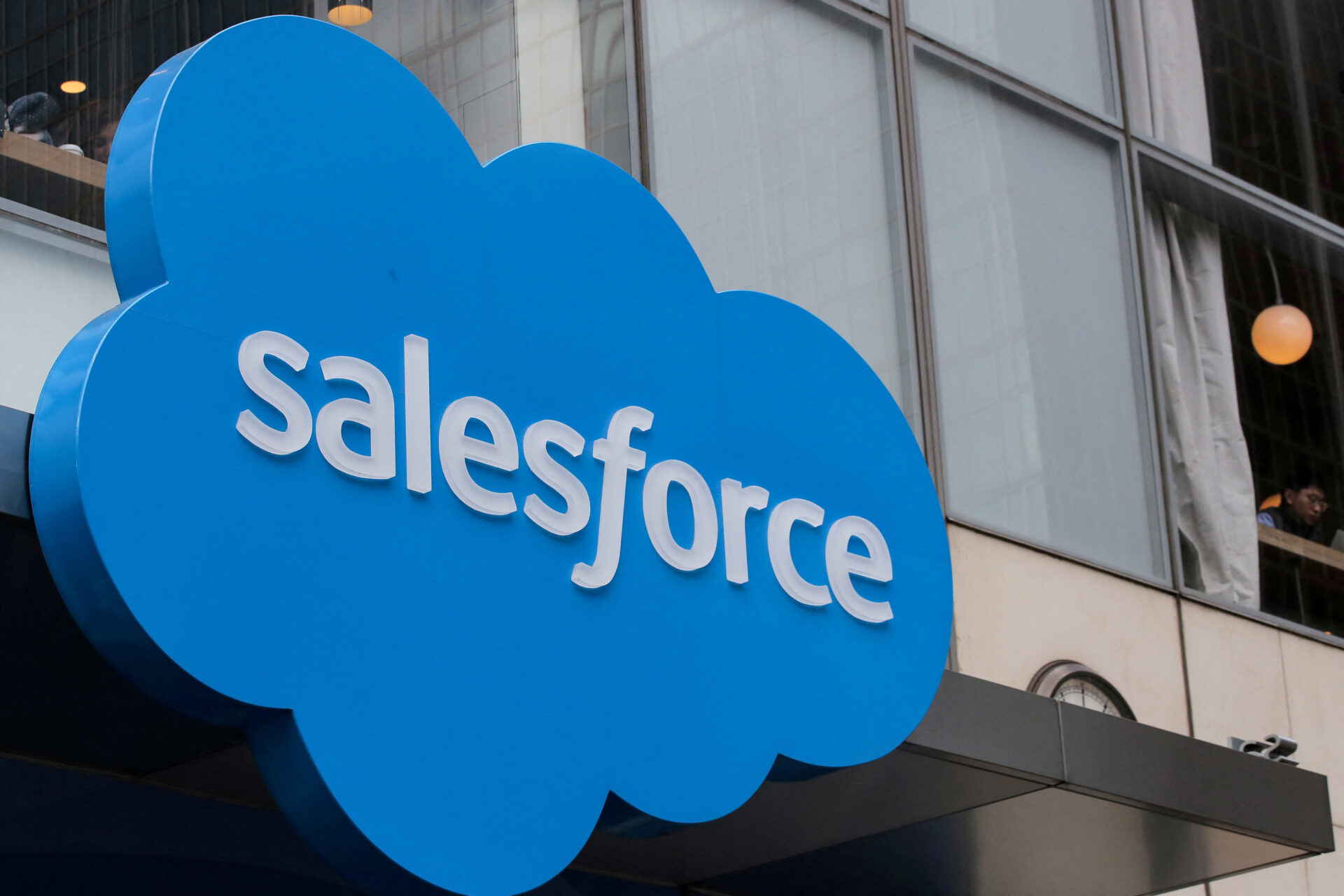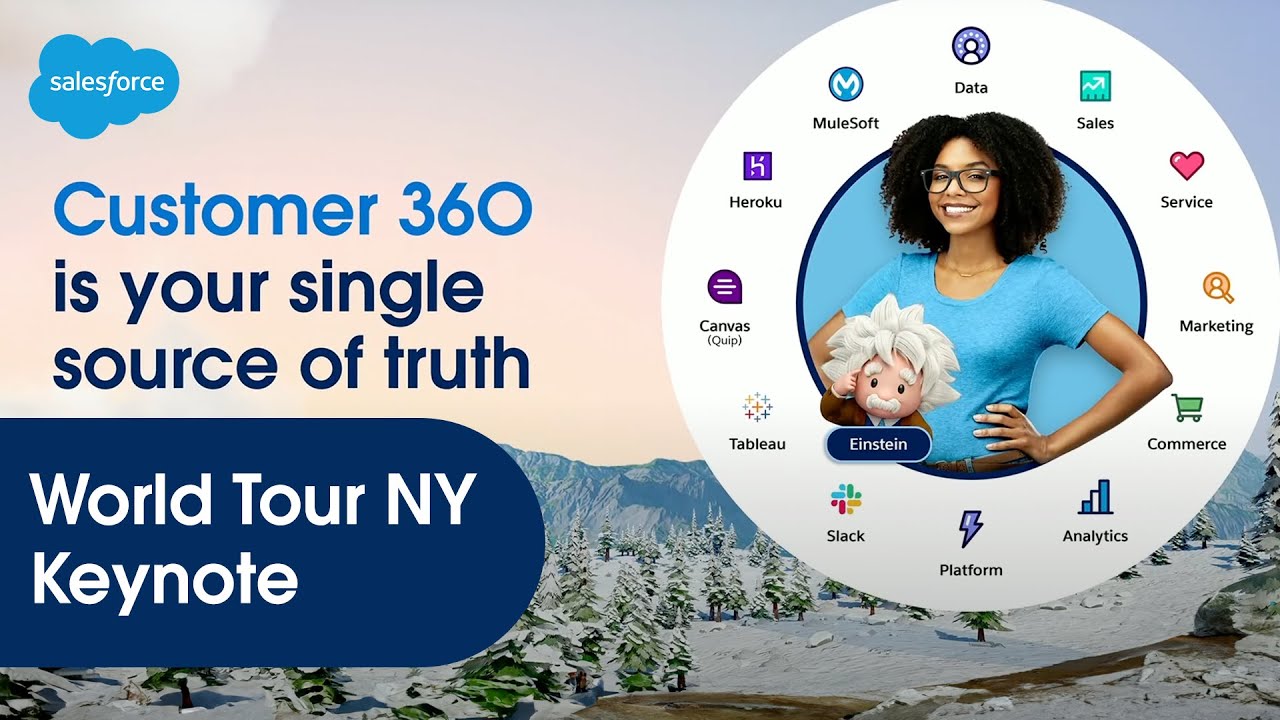Salesforce is a leading cloud-based software company that provides a wide range of customer relationship management (CRM) solutions to businesses of all sizes. With a rich history spanning over two decades, Salesforce has evolved into a comprehensive platform that empowers organizations to streamline their sales, marketing, and customer service operations, while also providing cutting-edge tools for data analysis, automation, and integration.
Founded in 1999 by Marc Benioff, Salesforce pioneered the concept of software-as-a-service (SaaS), allowing customers to access powerful enterprise software applications from anywhere, at any time, without the need for expensive hardware or complex installations. This disruptive approach to software delivery revolutionized the industry and paved the way for the modern cloud computing landscape.

At its core, Salesforce’s CRM platform offers a robust suite of tools designed to optimize every aspect of customer engagement. From prospecting and lead generation to account management, sales forecasting, and customer support, Salesforce’s feature-rich environment enables organizations to build stronger relationships with their clients, improve collaboration across departments, and make data-driven decisions that drive growth and profitability.
The company’s flagship offering, Sales Cloud, provides a unified platform for managing sales activities, including lead and opportunity management, sales forecasting, and performance analytics. Marketing Cloud, another key component of the Salesforce platform, empowers marketers to create personalized, omnichannel campaigns that engage customers across various touchpoints, such as email, social media, mobile, and web.
In addition to these core CRM and marketing solutions, Salesforce has made significant investments in emerging technologies like artificial intelligence (AI), machine learning (ML), and the Internet of Things (IoT). These advancements enable businesses to leverage predictive analytics, natural language processing, and automation to further enhance their customer experiences and gain valuable insights from vast amounts of data.
To cater to diverse industry requirements, Salesforce has developed specialized clouds, such as Financial Services Cloud, Healthcare Cloud, and Retail Cloud, each tailored to address unique sector challenges and regulations. Furthermore, strategic acquisitions, such as ExactTarget, Pardot, and Demandware, have expanded Salesforce’s capabilities in areas like email marketing, B2B marketing automation, and e-commerce.
With over 150,000 customers worldwide, Salesforce has established itself as a trusted partner for businesses across various industries and geographies. Its commitment to customer success, innovation, and community involvement has earned numerous accolades, including being named one of Fortune’s Best Places to Work For® and a leader in Gartner’s Magic Quadrant for Sales Force Automation.
As businesses continue to adapt to an increasingly competitive and digitally driven landscape, Salesforce remains at the forefront of the CRM revolution, empowering organizations to connect with their customers in new and meaningful ways, fostering long-term loyalty, and driving sustainable growth. Whether you’re a small startup or a large multinational corporation, Salesforce’s ever-evolving platform and commitment to customer success make it an ideal partner for your digital transformation journey.
Marketing Strategy of Salesforce
1. Customer-Centric Approach
Salesforce’s marketing strategy hinges on a fundamental principle: prioritizing the customer. This customer-centric approach permeates every aspect of their marketing efforts, from content creation to campaign execution. By deeply understanding customer needs and aspirations, Salesforce tailors its messaging and offerings to resonate deeply with its target audience.
This focus on customer-centricity manifests in several key ways:
Content marketing: Salesforce produces a wealth of informative and engaging content, such as blog posts, webinars, and ebooks, that addresses specific customer pain points and offers practical solutions. This content educates and empowers potential customers, fostering trust and establishing Salesforce as a thought leader in the industry.
Personalization: Salesforce leverages data and analytics to personalize its marketing communications, ensuring that each customer receives relevant and timely messages. This personalized approach fosters a sense of connection and increases the likelihood of engagement.
Community building: Salesforce cultivates a strong community around its brand through events like Dreamforce and online forums. This fosters a sense of belonging and allows customers to connect with each other and share their experiences.
By prioritizing customer needs and building genuine relationships, Salesforce’s customer-centric marketing strategy fosters loyalty, advocacy, and long-term success for both the company and its customers.
Marketing teams are always advised by Salesforce Data 360 Experts to focus on messaging that reflects real customer interests rather than generic promotions. This approach encourages meaningful engagement and helps create experiences that feel authentic and relevant.
2. Multi-Channel Marketing
In today’s dynamic marketing landscape, a single-channel approach simply doesn’t cut it. Recognizing this, Salesforce champions multi-channel marketing as a cornerstone of its strategy. This involves engaging customers across various channels, ensuring consistent messaging and a seamless experience regardless of the touchpoint.
Salesforce’s multi-channel approach revolves around several key pillars:
Channel diversification: They leverage a diverse range of channels, including email, social media, mobile marketing, advertising, and events, to reach customers where they are and cater to their preferred communication methods, while also implementing strategies for organic social growth to maximize engagement across platforms. Once leads begin flowing in across these channels, salesforce lead routing tools are often used to ensure new prospects are assigned and followed up on without delay.
Seamless omnichannel experience: Connecting the dots is crucial. Salesforce utilizes marketing automation and data integration to create a unified customer journey across channels. This ensures consistent messaging, personalized interactions, and a smooth transition between touchpoints.
Data-driven optimization: Data is the fuel for effective multi-channel marketing. Using a rank tracking tool for LLMs, Salesforce analyzes customer behavior and engagement across channels to identify what resonates and optimize campaigns for maximum impact.
By orchestrating a cohesive and personalized experience across multiple channels, Salesforce fosters deeper customer engagement, improved brand recall, and ultimately, higher conversion rates.
3. Targeting Diverse Industries
Salesforce recognizes that the needs of businesses vary significantly across different industries. To cater to this diversity, they employ a targeted industry marketing strategy, offering tailored solutions that address specific pain points and opportunities within each sector.
This approach manifests in several key ways:
Industry-specific cloud solutions: Salesforce has developed cloud-based CRM platforms specifically designed for various industries, such as Salesforce Financial Services Cloud and Salesforce Healthcare Cloud. These solutions integrate industry-specific features and functionalities, catering to the unique needs and compliance requirements of each sector.
Targeted content and messaging: Salesforce crafts content and marketing messages that resonate with the specific challenges and priorities of different industries. This ensures that their communication is relevant and impactful, fostering deeper engagement with potential customers.
Industry expertise: Salesforce invests in building industry expertise within its team. This allows them to understand the nuances of each sector and develop solutions that truly address the specific needs of their customers.

By adapting their approach to cater to the unique needs of diverse industries, Salesforce demonstrates its commitment to providing relevant, valuable solutions that drive business growth and success across the board. This targeted strategy allows them to connect with a wider audience, build stronger relationships with customers, and ultimately achieve greater market penetration.
4. Innovation and Thought Leadership
Salesforce leverages innovation and thought leadership as key elements of its marketing strategy. This approach allows them to establish themselves as a trusted authority in the tech industry, attract potential customers, and foster brand loyalty.
Thought Leadership:
Diverse Topics: Salesforce’s blog features thought leadership content on various relevant topics, including data management, equality, career breaks, and self-service experiences. This showcases their commitment to broader industry issues beyond just their products.
Customer-Centric Focus: Their content delves into areas like omnichannel customer engagement, service process management, and customer service automation. This demonstrates their deep understanding of customer needs and positions them as a valuable resource for businesses seeking to improve their customer experiences.
Innovation:
Ethical and Inclusive Approach: Salesforce emphasizes the ethical and inclusive development and use of technology. This resonates with businesses seeking socially responsible partners and positions them as a forward-thinking company.
Scalability and Agility: Their quick modular architecture empowers businesses to scale their digital operations efficiently. This highlights their commitment to providing adaptable solutions that cater to diverse business needs.
By combining thought leadership and innovation, Salesforce effectively positions itself as a thought leader and a trusted partner for businesses seeking to navigate the ever-evolving technological landscape. This approach fosters brand recognition, attracts potential customers, and ultimately drives business growth. AI data analytics software plays a key role in this innovation, enabling businesses to analyze vast amounts of data, uncover trends, and make data-driven decisions that fuel smarter business strategies.
5. Partnerships and Ecosystem
Salesforce leverages a robust partner ecosystem as a core marketing strategy, fostering collaboration and creating opportunities in the enterprise app space. This ecosystem encompasses a diverse network of businesses, consultants, independent developers, and market leaders like Google, IBM, and Amazon.
These partnerships offer several benefits:
Expanded reach and expertise: By collaborating with various partners, Salesforce gains access to a wider customer base and specialized expertise, enhancing its service offerings and market penetration.
Innovation and co-creation: Partnerships with leading technology companies like IBM enable Salesforce to integrate cutting-edge solutions like Watson into its platform, accelerating innovation and delivering enhanced value to customers.
Scalability and efficiency: Partners play a crucial role in implementing, customizing, and managing Salesforce solutions for clients, allowing Salesforce to scale its operations efficiently and meet diverse customer needs.
Overall, Salesforce’s partner ecosystem fosters a collaborative environment that drives growth, innovation, and customer success.
6. Events and Conferences
Salesforce strategically utilizes events and conferences to engage with various audiences, promote its products and services, and foster a vibrant community. These events offer a multifaceted approach to marketing, catering to diverse interests and needs.
Here’s how Salesforce leverages events for marketing:
Brand awareness and thought leadership: Large-scale events like Salesforce World Tour and Tableau Conference attract a broad audience and position Salesforce as a leader in the CRM and data analytics space. Keynotes, industry sessions, and top speakers showcase expertise and generate brand recognition.
Customer engagement and education: Events like Connections and Education Summit cater to specific user groups, providing them with dedicated learning opportunities, product demonstrations, and networking platforms. This fosters deeper customer engagement and strengthens relationships.
Community building and advocacy: Events like Albanian Dreamin’ and Texas Dreamin’ cultivate a sense of community among Salesforce users and partners. These regional gatherings encourage collaboration, knowledge sharing, and advocacy, creating a loyal user base.
Overall, Salesforce’s diverse event portfolio serves as a powerful marketing tool, effectively reaching various audiences, driving brand awareness, fostering customer engagement, and building a strong community around its products and services.
By combining these diverse marketing strategies, Salesforce effectively reaches its target audience, builds brand awareness, drives customer acquisition and retention, and positions itself as a leader in the CRM and cloud computing landscape.
Also Read: Salesforce: Redefining Landscape of Cloud-Based Solutions
To read more content like this, subscribe to our newsletter






